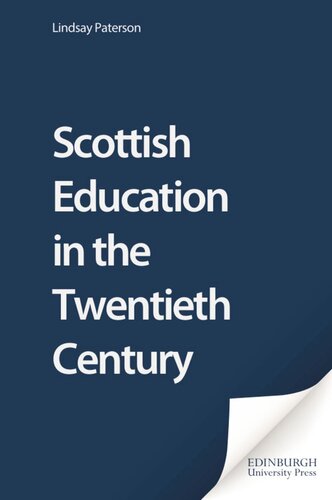

Most ebook files are in PDF format, so you can easily read them using various software such as Foxit Reader or directly on the Google Chrome browser.
Some ebook files are released by publishers in other formats such as .awz, .mobi, .epub, .fb2, etc. You may need to install specific software to read these formats on mobile/PC, such as Calibre.
Please read the tutorial at this link: https://ebookbell.com/faq
We offer FREE conversion to the popular formats you request; however, this may take some time. Therefore, right after payment, please email us, and we will try to provide the service as quickly as possible.
For some exceptional file formats or broken links (if any), please refrain from opening any disputes. Instead, email us first, and we will try to assist within a maximum of 6 hours.
EbookBell Team

4.0
46 reviewsScotland's education system has been claimed by many to be one of the most successful in the world and its alleged decline in recent decades has generated a great deal of controversy. This book is the first full account of the history of twentieth-century Scottish education, by Lindsay Paterson, a leading specialist in the area.
Scottish Education investigates Scotland's response to the key question faced by all mass systems of education. How can democracy be reconciled with the necessity of selection - both selection of culture in the maintenance of excellence, and selection of people, allocating them to differentiated occupations while also preparing them for life as equal citizens in the common culture of the community?
Paterson argues that the Scottish answer to this has been recurrent attempts to give wide access to common types of educational institution, but continuing to define that education in fairly traditional academic terms. This is then also Scotland's attempt to reconcile the tension between social solidarity and liberal opportunity, between the needs of the individual and the needs of society and its inherited culture.
This broad-ranging and stimulating account of a century of Scottish education is organised chronologically into two broad parts: Competition and Opportunity, 1880s-1930s; and Welfare and Individualism, 1940s-1990s. Within these periods are chapters on each of the main sectors of education.
Key Features